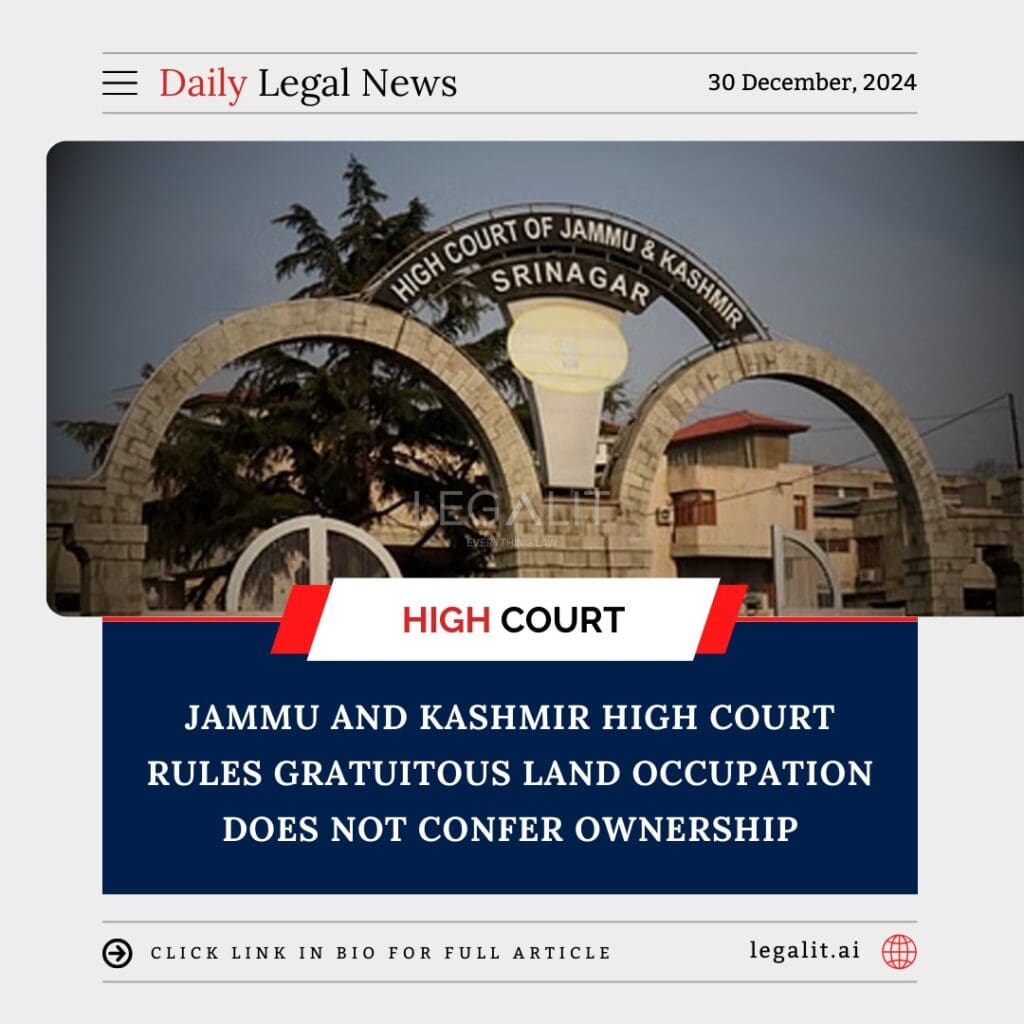
The Jammu and Kashmir High Court has clarified that occupying land without authorization or payment does not grant any legal title to the occupant. The court’s decision reinforces the principle that land ownership is determined by lawful possession and cannot be claimed merely through gratuitous occupation.
Background
The case arose from a dispute over land ownership in which the occupant argued that prolonged possession granted them ownership rights. The individual occupying the land had no legal documentation or agreement to support their claim. This led to a legal challenge questioning whether long-term occupation without payment or authorization could result in ownership.
Court’s Rationale
The High Court, while delivering its judgment, emphasized that:
- Possession Alone Is Insufficient:
Mere possession of land, without any legal backing such as ownership documents or valid agreements, cannot confer ownership rights on the occupant. - No Adverse Possession Claim:
The court observed that for a claim of adverse possession to succeed, the occupant must demonstrate hostile possession, continuous for a specific statutory period, against the interests of the true owner. Gratuitous occupation does not fulfill these criteria. - Principle of Ownership Rights:
Land ownership is governed by law, and the rights of the legal owner cannot be overridden by unauthorized occupation, even if it is prolonged. The court reiterated that recognizing such claims would undermine property laws and legitimate ownership.
Implications of the Judgment
- Reinforcement of Property Rights:
The judgment upholds the sanctity of property ownership and protects rightful owners from illegal claims based on unauthorized occupation. - Discouraging Land Encroachments:
By ruling against gratuitous occupation, the court sends a strong message against encroachment, emphasizing the importance of lawful possession and documentation. - Guidance for Future Cases:
This ruling sets a precedent for similar disputes, providing clear guidance on the inadmissibility of claims based solely on occupation without legal authorization.
Conclusion
The Jammu and Kashmir High Court’s ruling underscores the principle that property ownership cannot be acquired through mere gratuitous occupation. This decision strengthens the legal framework protecting rightful landowners and discourages illegal encroachments, ensuring the rule of law prevails in property disputes.